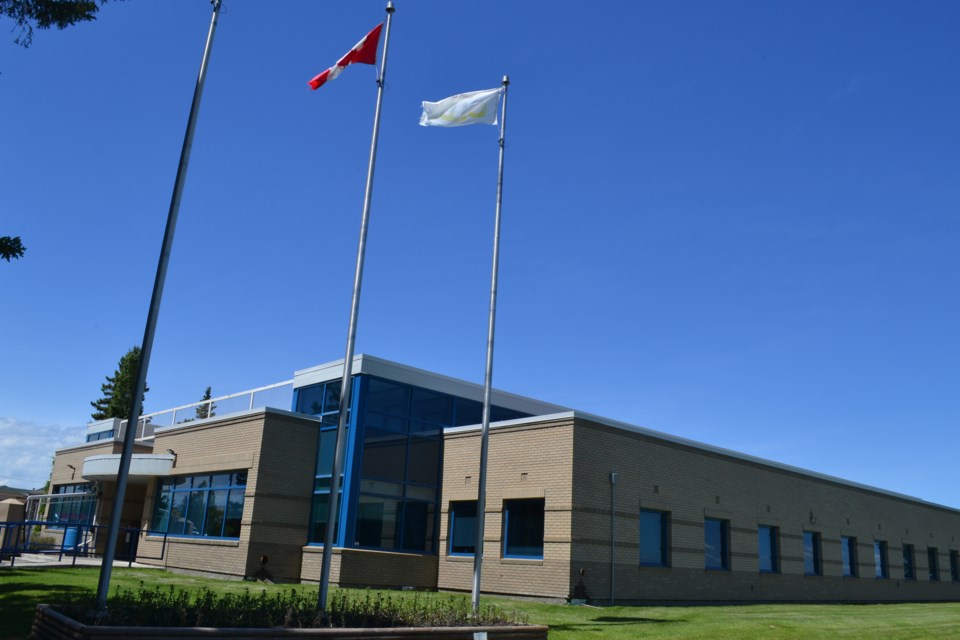OLDS — Olds property taxpayers are almost certainly looking at a tax increase next year, chief administrative officer Brent Williams says.
The question is, will it be three per cent or five per cent?
Council was told that due to inflation, projected increases in property values and various costs they have no choice but to pay and pass on, the average residential homeowner would see their total 2023 municipal tax bill rise by $285.
The tax bill for the average non-residential property would soar by $830.
“The tax increase is being presented as an inevitability in this budget,” Williams said during a special council meeting to discuss the town budget, held Oct. 31 in council chambers.
“The two options being proposed are three per cent and five per cent.”
Williams and finance director Sheena Linderman noted council was only being presented with numbers regarding the town’s base budget: core services, revenues and expenses that it takes to operate a municipality on a day-to-day basis.
Linderman said the base operating budget anticipates revenues of $32,354,620 and expenses of $32,159,659, leaving the town with an operating surplus of $194,961.
Williams said the Oct. 31 meeting was just the first of many discussions expected as the budget is hammered out.
He also said the capital budget, expected to be presented shortly, is mostly financed by grants and reserves, “so the taxation impact is ‘minimal.’”
Williams and Linderman said there are a few main factors in the anticipated increases this year, including inflation and an increase in assessed property values so far, currently pegged at about 10.2 per cent.
Another factor are requisitions that the town can’t change – only collect and pass on, such as money for Mountain View Seniors' Housing (MVSH), and increased charges from water and wastewater commissions.
Linderman said for 2023, the education school tax requisition has increased by $30,000 and the MVSH requisition has risen by $95,000.
She said if the assessments remain as they are in February when they have to be finalized and relayed to the province, the value of the average residential home would rise to $347,000.
When that fact is combined with the increases in requisitions, the average residential homeowner would see their total municipal tax bill increase by $285.
Under that same scenario, the value of the average non-residential property would be $959,000 and taxes for it would rise by $830.
Several councillors said to keep taxes down as low as possible, they’re likely going to have to make some very hard decisions over the next several weeks: either raise taxes to keep the same level of service or make cutbacks.
Coun. James Cummings noted that in budget surveys undertaken earlier by the town, the main message from respondents was to keep the same level of services they’ve been enjoying, but don’t increase taxes.
“They want to have the same services with no tax increase. Inflation doesn’t allow that to exist,” he said.
“So while we have an inflationary crisis going on right now, if they want the same level of services or any sort of increase in services, there has to be an expectation of an increase in revenue for the town.
“The only way to do that is the only real revenue source we have, which is tax dollars.
Coun. Dan Daley said the time may have come to actually cut services.
“I think this is the time now that we start looking at cutting back what we do and to make it feasible financially for people to stay in the town of Olds,” he said.
“Just my thoughts that we can’t keep this level up here and continually keep charging citizens more and more all the time and expecting them to pay. I think it’s time now we start looking at where can we cut back.”
Coun. Darren Wilson agreed that “some hard calls around service and service levels” may have to be made, but said he’ll wait and see what a three or five per cent increase would mean.
He said the town needs to strike “a fine balance” between what he called the “meat and potatoes” core services the town provides such as water and wastewater services and “the jewellery, the bling,” (although he didn’t specify what that jewellery or bling would be).
At the same time, Wilson also expressed concern over the town possibly drawing down its financial reserves too much and said he’d be OK with an increase to build them back up.
Coun. Heather Ryan sits on the Mountain View Seniors' Housing board and has done so since she was first elected in 2017.
She said higher costs due to inflation have been “just overwhelming” for MVSH.
“When food increases $100,000 in one year, it’s pretty tough to find that in your budget,” Ryan said.
She said one of MVSH’s biggest costs a few years ago was construction of the new building in Sundre.
Coun. Wanda Blatz said several times that the town has to clearly communicate to residents how little wriggle room council and administrative staff have to avoid tax increases as a result of inflation and all those requisitions that they have no choice but to pay or pass on.
"I think that we need to do some very fulsome communication and engagement with all of our residents to explain these increases, both with the utilities and with our requisitions with Mountain View Seniors' Housing and our seniors, as well as our assessments, so people can fully understand what is within our control and what is not within our control,” she said.



